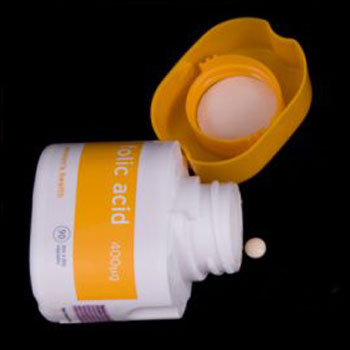Are You Giving Your Baby Enough Folic Acid?

The second week of January is Folic Acid Awareness week, and for many women of childbearing age, they may not be getting enough. This particular nutrient is important because it prevents many birth defects, particularly neural tube disorders. The neural tube eventually develops into the baby’s spinal cord and brain, and taking folic acid can prevent birth defects such as spina bifida. Getting 400 mcg, the US recommended daily allowance, of folic acid each day for at least a month before conception can reduce the risk of NTDs by up to 70 percent. It also helps prevent certain heart defects and cleft lip and palate. This is why doctors recommend that all women of childbearing age take a supplement, or eat folate-rich foods – it may be a month or more before a woman even realizes she’s pregnant. As pregnancy progresses, obstetricians typically recommend prenatal vitamins that contain plenty of folic acid – 600 mcg or more, depending on your family history. With the addition of folic acid to many of the foods and drinks we consume, birth defects have decreased.
But it’s still important to be sure you get all the folic acid that you – and your potential offspring – need. Look for breakfast foods such as breads, cereals and nutrition bars to have an extra boost of folic acid, along with the orange juice you use to wash them down. Beans, spinach and broccoli are also folate-rich. Pair these foods with a multivitamin, and you’re probably getting plenty of folic acid. But is there such a thing as too much? For some populations, getting these mega doses of folic acid may not be a good idea. In older people, folic acid serves to help along normal DNA replication, but too much of it can help precancerous cells grow malignant. A recent study found that adults over age 60 shouldn’t take supplements with folic acid, especially considering the population’s risk for precancerous colon polyps and prostate cells. Experts say the best sources of folate for older adults are those that occur naturally in food – this source is harmless. Regardless of your age, you should talk to your doctor and check food labels for those that are fortified with this important nutrient.
